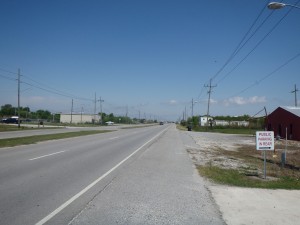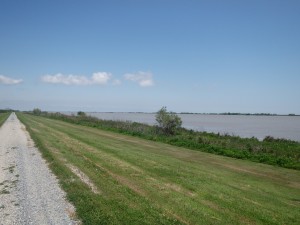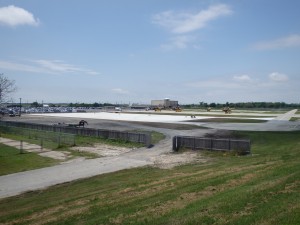
where to buy isotretinoin "Downtown" Venice.
Pregabalin back order I left a bit late my first morning on the road – some of it was that I was not planning on cycling that much that day – it is best to start slowly, if you intend to keep going for a long time – but there was a little bit of fear, that gave weight to natural inertia. From the marina the previous evening I had taken a slight detour over to the southernmost point on the road, to mark the beginning of the cycling portion of the trip: it was five miles from there to my hotel. So now I was five miles into the trip, and something like 2,395 miles of river road were north of me. It was such a large prospect that it was almost better not to step into it.
When I walked people would tell me things like, “You’re not looking so good – you all right?” I had thrown my back out two weeks earlier, and it was still a problem. I could cycle, but dismounting was painful, and I simply dreaded having to stand up after being seated. I was doing stretches to fix the problem, and I could feel it was getting better, but it was by no means ideal.
But I rode out that April morning all the same, and pointed my bike north. I started on the main highway, which was ugly, then took a side road past some small houses and trailers for awhile, and then, not feeling close enough to the river, I got up on the levee and rode there. The top of the levee was gravel, a bit looser than I wanted for my bike, but I could ride on it. What I could not do, however, was go more than eight or nine miles an hour on gravel. If I wanted speed I needed a better surface. But it was nice riding on top of the levee – the river was my companion. It was mostly empty – occasionally very large boats came by, but not much else. I saw no one walking or riding their bikes, in the neighborhoods or on the levee.
Venice bleeds seamlessly into Boothville, with buildings scattered at more or less equal distances all along the road. There is no point at which you might say, “This is downtown Venice,” or “This is downtown Boothville” – it was sprawl without definition, along the one through road.
From time to time there were large parking lots, entirely out of scale with the small town around them, several acres’ worth of blacktop. They were completely filled with vehicles – mostly pickup trucks, and a plurality of white Chevy Silverados. From living in the country I have become very familiar with this truck and the men who drive them, and I will say that I never see one without wincing a little: the men I have known who have owned them, underneath the bravado, have mostly radiated powerlessness and fear. The rural districts of this country, where such trucks are the norm, are also some of the poorest and, in terms of power and influence, least important places in the country. The men who live there live mostly to serve other men more powerful than they, who live in cities: they build extensions onto their summer homes, or mow their lawns, or plow their driveways. Here they were pumping their gas – or more accurately, they were pumping gas for everyone, and pumping money for the few rich who owned the oil companies. They park their Silverados in these lots and take boats or helicopters out to the oil platforms, where they typically work for two weeks straight and then are brought back to land. They typically, I am told, do not live in Venice, but drive back to their homes in upper Louisiana or Texas or Mississippi or Alabama when their two-week shifts are done. Since they are not actually living in Venice – not even during their shifts – they don’t have much of an effect on the local economy. There were almost no stores to serve them – all those thousands of cars resulted in only one grocery, and two bars, which probably served the fishing community more than the oil workers anyway.
From atop the levee I could almost get a good picture of one of these lots which was next to a heliport, when a man who was pulling up to the lot’s barbed wire fence got out of his truck and started walking up the levee. The way he had his head down inclined me to believe he meant nothing friendly.
I have a standard way of approaching situations like this now – I have been in many such, as curiosity and corporate America never seem to get along: “Uh-oh,” I said. “Am I in trouble?”
“Yeah.”
“Why is that?”
“You better watch out! Look I just work here, I’m trying to help you out. But they’ve been picking people up who take pictures around here, they take ‘em down to the police station and check them out.”
“There’s nothing illegal about taking pictures, is there?”
“Listen I don’t know the law, but I know they’ve picked people up before. Trust me, all these places along the river, they all have security guards. So I wouldn’t take any pictures if I were you.”
“Okay, good to know. It’s just so impressive – so many cars here. All those cars are people who are out on the Gulf?”
“Oh yeah. There’s actually another lot which is attached to this heliport, it’s about a mile down the road, that one’s full too. This is a brand-new facility they built to handle all the people going out to the oil platforms. The old one wasn’t big enough.”
“Impressive. I saw the lots were full even on Easter.”
“No holidays in the oil business, I’ll say that. Speaking of which, I’m headed to work, but I’m telling you, watch out!”
I took note of his advice but did not follow it, of course.
Venice, jutting out into the Gulf as it does, was almost completely destroyed by Hurricane Katrina. The houses there now are all new because the old ones are almost all gone. But most of the lots do have houses, and the houses all look trim, even though they are mostly trailers of some sort. A friend of mine who lives in Louisiana told me, “I knew Venice would come back after the storm. Maybe other places down in Plaquemines Parish not so much, but Venice is important for the oil industry. It’s the furthest you can get into the Gulf by road. That’s valuable. Even if everything else is just ocean all around, they’ll try to hold on to Venice – it’ll be a bridge to an island, like Key West, if it has to be.”


One Trackback/Pingback
[…] Boothville there was some waste ground, which was coming up in forest; here there appears to be ground enough […]
Post a Comment